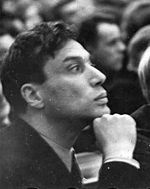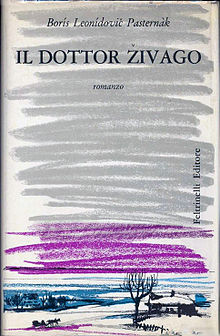|
Biographical Log of Michael Furstner - Page 241
10 | 11 ||
2012 :
Jan |
Feb |
Mar |
Apr |
May |
Jun |
Jul |
Aug |
Sep |
Oct |
Nov |
Dec || Page :
Previous |
Next
The Martinshof Story -
A Philosophy of Happiness -
Life Awareness -
Maps, Text & Photo series
Most Recent -
Next -
Previous -
Page 1 -
Photos -
MP3s -
Maps & Text series -
Jazclass
Wednesday - Sunday, March 21 - 25 2012
(diary)
The saying goes that "there is a time and a
place for everything", and looking back at my life there has been
only one time in my life that I lived in a place which decidedly did
not agree with me.
Surprisingly that was as a baby and small toddler during the first 5
years of my life when we lived in Zutphen. Even that young, I hated it.
But as soon
as we moved into the country to Martinshof things changed and from that point
onwards I have truly enjoyed every place I lived throughout my life
(and there have been many) right up to this very day.
As I have related earlier
in my Blog the major driving forces throughout my life have been a
quest for freedom and a search for increasing awareness.
So is it surprising that at this late stage of my life I find
myself living in Darwin, the very place named after the man
who provided the key that liberated human kind from the cage of
ignorance and opened up our minds to the reality of our existence in
this universe.
 Interestingly 20 or 30 years ago Darwin was typically a place mainly
for young people and at retirement age people tended to leave and
"move South". But this is no longer the case.
Interestingly 20 or 30 years ago Darwin was typically a place mainly
for young people and at retirement age people tended to leave and
"move South". But this is no longer the case.
The NT Government
has made it very attractive for retirees to stay here, with generous
consessions for pensioners towards the costs of electricity, water,
rates, car registration, free drivers licence and even (every 2
years) a travel grant to visit relatives down South (or let them
visit here for free).
Hospital and other medical and social
services here are also good now, so these days the full spectrum of
ages make up the 130,000 odd people who call Darwin home.
I have told you repeatedly that I absolutely love it here and I have
arrived at Darwin at the right time in my life. All anxieties and
pressures of work, family, finances, etc. that mar most of our lives
(as adjacent chart from The Economist clearly reveals) have
long gone and I now consciously feel a sense of well
being which I can not recall having ever experienced in my life before.
The tranquility and nature setting where I live right now, the
sense of freedom which pervades Darwin and its inhabitants, and the
superb weather we experience here all contribute to making this a
perfect place to live.
As you can see on the chart the average sense of well being
(reported by Americans) at my age (75) is around 6.9, but I personally
feel that mine is well above that average and somewhere between 8 and
9. As long as my health holds out and no external upheavals come my
way I hope that level may hold for some time to come.
Most Recent -
Next -
Previous -
Page 1 -
Photos -
MP3s -
Maps & Text series -
Jazclass
Monday - Saturday, March 26 - 31 2012
(diary)
Does it take a lifetime to discover who we really are ? Or is it only
after entering retirement age that we have the time and inclination to look
back upon our life and start to recognize clear trends in our thinking,
feeling and behaviour ?
I am a born annalist, not the dogged fact collecting academic kind, but the
creative, intuitive variety who sniffs out a trend, connection or
underlying rule sometimes with the barest of firm evidence. I have
loved doing that throughout my life, but strangely enough always applied
it to the world around me, never to myself. Until now.
 Last month, spurred on by Charles Dickens' 200th anniversary of his
birthday (Feb.7), I attempted once again to read through one of this
British icon's novels : "Great Expectations". But just like a couple of
previous attempts on other novels of his, I got bored with it very quickly
(although I
did manage to get through 100 pages this time, instead of the 20 odd in
past attempts).
Last month, spurred on by Charles Dickens' 200th anniversary of his
birthday (Feb.7), I attempted once again to read through one of this
British icon's novels : "Great Expectations". But just like a couple of
previous attempts on other novels of his, I got bored with it very quickly
(although I
did manage to get through 100 pages this time, instead of the 20 odd in
past attempts).
Why is it, I asked myself, that I just don't like his writing ? He
is an intelligent, competent writer and excellent story teller. He became
famous and rich almost overnight, so a real populist writer of his time.
Yet on scale of 1 to 10 I give Dickens a mere 3 compared to 9s for his
contemporaries like Jane Austen and Thomas Hardy.
 I believe it is my (almost lifelong) disinterest in all fiction that does
not reflect, or comment upon, reality. I never liked science
fiction for example. Many of my school friends in the 1940s and 50s loved
the famous (science fiction) novels by Jules Vernes, but I only read
20 odd pages of one, than never looked at another one again. This
disinterest continued throughout my life.
I believe it is my (almost lifelong) disinterest in all fiction that does
not reflect, or comment upon, reality. I never liked science
fiction for example. Many of my school friends in the 1940s and 50s loved
the famous (science fiction) novels by Jules Vernes, but I only read
20 odd pages of one, than never looked at another one again. This
disinterest continued throughout my life.
Reality of humanity, of
nature, of the world and the universe are, and always will be, the greatest
mystery in life. Deviation from those themes, although perhaps
entertaining and imaginative, in the end are merely artificial
trivialities compared to the reality which confronts us every day of our
life.
From the little I have read of Charles Dickens I find his
characters (much loved by the English public) grotesque caricatures and his
settings
and environments Alice in Wonderland like surreal.
In fact the tale of
the
Emperor's clothes comes to my mind, in the reverse that is. I find
Dickens' work all clothes, but with nothing inside to inhabit them. Plenty
of superficial entertaining material, but no (mind provoking) substance.
As chance would have it, while returning Dickens' novel to the Library I
picked up Boris Pasternak's Doctor Zhivago (which won him
the Nobel
Price for Literature in 1958). And my goodness : what a difference !
Pasternak's writing is pure poetry in prose, unparalleled in style,
creative imagination, intelligence and quality.
The English translators (Max Hayward
and Manya Harari) apologise for failing to do justice to Pasternak's
lyrical language. But they have done their best in conveying at least some
sense of
Pasternak's emotional exuberance about Russia's nature and seasonal beauty
into the English
language.
The book is also a testament to that tumultuous time in Russia
during WW1 and the Communist revolution that followed it, full of
hardship, injustice and bloodshed. (Zhivago's love for the two women in his
life, which is the main theme of the original film, is but one of the many
facets of this wonderful piece of literature.)
Comments -
Most Recent -
Next Page -
Previous -
Top -
Photos -
MP3s -
Maps & Text series -
Jazclass
© 2012 Michael Furstner
|


